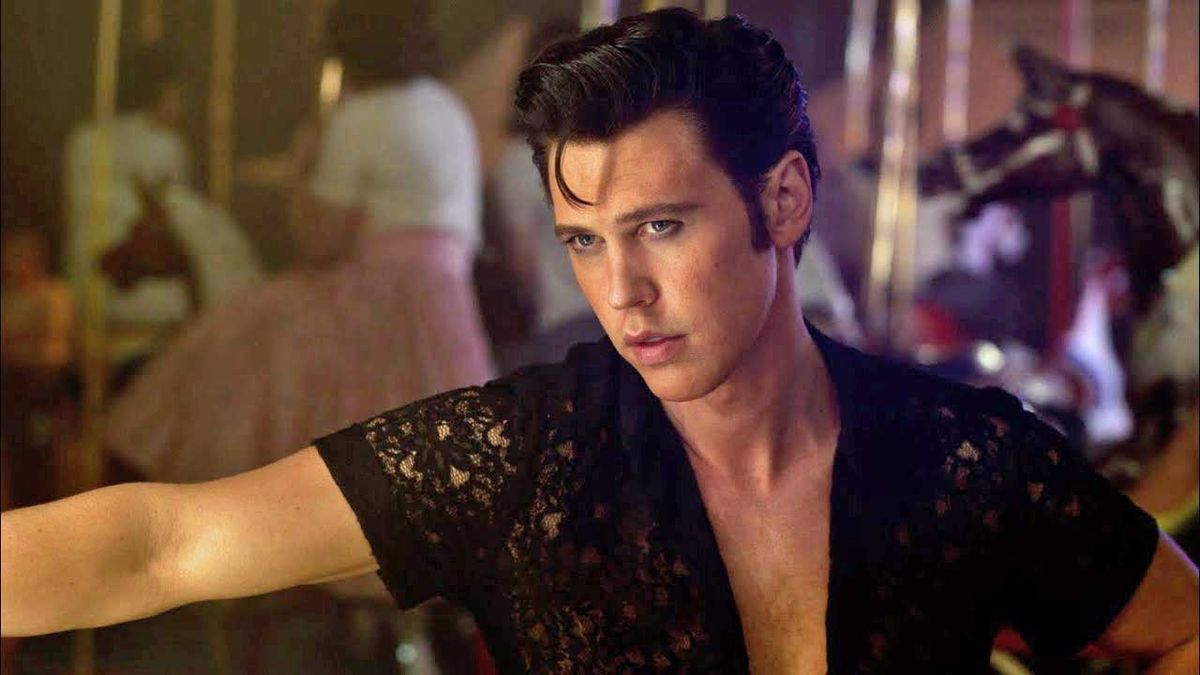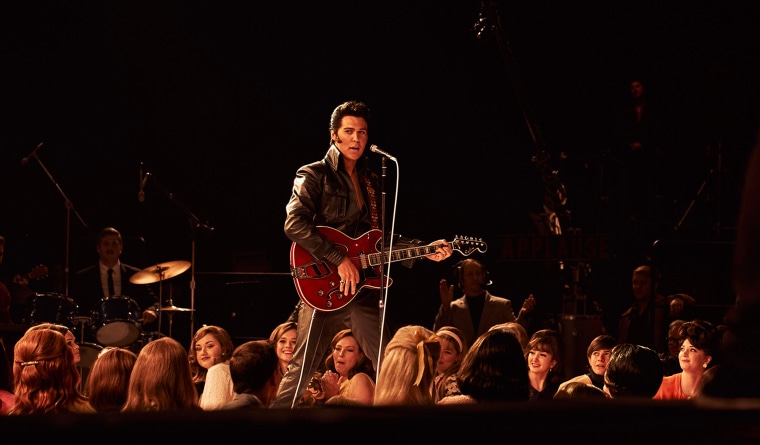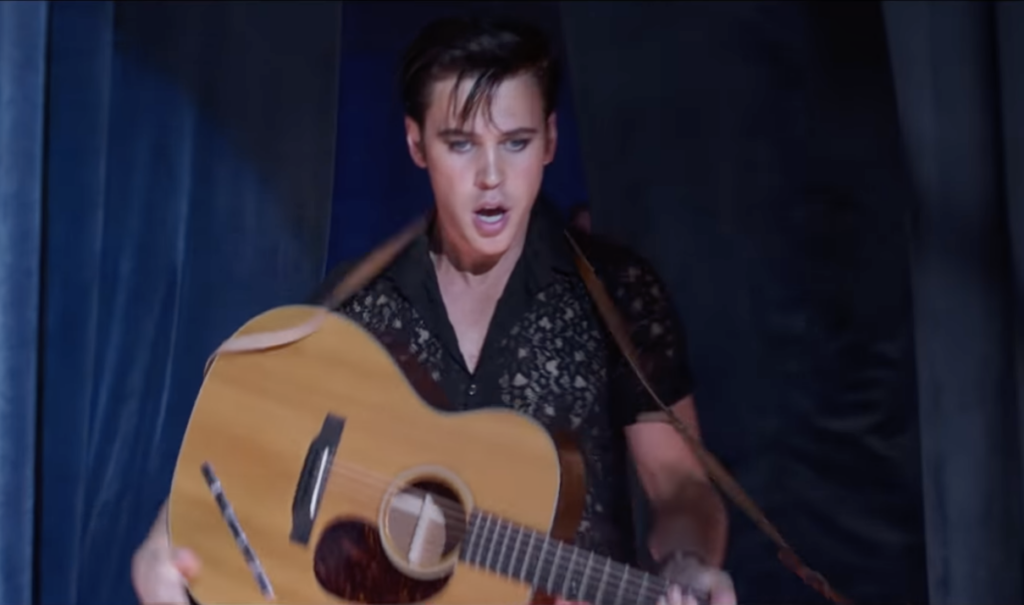When Baz Luhrmann started out to produce Elvis, there were some things he didn’t want to accomplish. For one thing, the Australian filmmaker behind such hits as Moulin Rouge and The Great Gatsby made sure this wasn’t going to be a “biopic” about Elvis Presley, also known as the King of Rock ‘N’ Roll, contrary to possibly pre-release expectations. (The PG Elvis, starring Austin Butler, opens in Philippine theaters today, two days before it opens in the United States.)
“Well, I didn’t want to do a few things. One, a biopic — this is not a biopic. Two, I didn’t want it to feel nostalgic. And three, I just wanted to tell this epic story. The epic story really is about America in the ‘50s, ‘60s and ‘70s and about these two great gestures, which are the sell and the show, the showman and the snowman,” In an international Q&A, Baz stated.
This is why the film features numerous renowned Black-American musicians and their music, as well as other influences from Elvis’s time and place of birth, which helped him become not only a music legend, but also a “spiritual person to the end.”

Baz said, “You can’t tell that story if you don’t deal with the issue of race, particularly if you’re doing music. Now, I think Elvis was at the center of culture for the good, the bad and the ugly in the ‘50s, ‘60s and ‘70s. This young man, for a time, is living as a kid with his mother in one of the few white-designated houses in a black community,”
The filmmaker spent time in Memphis, where Elvis resided and recorded songs, as part of his preparation for the film. There, he ultimately encountered someone who knew the late musician intimately.
Baz added, “(He was) an African-American older man, Sam Bell, who just passed last year, but who, along with some other young boys, hung out with Elvis when they were about 13. They would run down to the juke joints and they would go to the Pentecostal joints. I think it’s incredibly important to understand how much Elvis loved gospel above all other music. He gravitated toward it, he would stay up after doing two shows in Vegas and sing gospel. It’s what made him a very spiritual person to the end,”

He stated, “So, because Elvis was absorbing music — gospel, country, and so on — he’s a product of all of these mixtures of music. Ergo, you have to have that music in the movie, you have to have (musicians like) Big Boy Crudup (played by Gary Clark Jr.) and Big Mama Thornton (Shonka Dukureh). As to Sister Rosetta Tharpe (Yola), do I actually know that he saw her? No, but I know that they were fans, I know Elvis’s mother, Gladys, played that music all the time. But most definitely his friendship with B.B. King (Kelvin Harrison Jr.) was genuine and B.B. says some extraordinary things about what he and Elvis felt together about music,”
But, in addition to presenting Elvis’ “great life” against the backdrop of great music from the 1950s through the 1970s, the film is also about the difficult, if not contentious, relationship between Elvis and his manager, Colonel Tom Parker (played by Tom Hanks).
Baz stated this at a separate worldwide news conference filmed live from Elvis’ Graceland mansion in Memphis for select Asian and Latin American reporters, “It’s an intimate journey of this guy called Elvis and this guy called Colonel Tom Parker. That’s the real thing,”
“That’s about, you know, show and business, about management and control and exploitation, and also about creativity in the soul and truth. I think a lot of that’s going on in the world today just seemed like a really wonderful way to take a great life and great music and explore bigger ideas.”
He wanted to see Elvis’ lengthy and exciting life through the colonel’s eyes, “make it more than you can just tell us, he’s born, he does this, it’s an extraordinary story.”
“But when you have a two-hander between the ego and the soul, between (Elvis and) the persona that actually most people think of as the villain,” he said. And in his tale, he contends, he argues, ‘I’m not the bad guy.’ This creates huge dramatic tension throughout the novel. It permits you to go places you wouldn’t normally go and expose things you wouldn’t be able to do otherwise.
“And I think it helps us explore a larger idea, which is, why did Elvis so come from such humble beginnings, the shame of his father, the poverty, the loss of his mother, this big hole in his heart is so so high, it was the sun and like Icarus, then tragically fall. No, why did that happen? And everyone says, ‘Oh, you think it was me? The evil manager who was just exploiting for money, but what he argues through the movie is hey, you know what, all I did was my job.
“You know, there’s a story, not in the movie, but when Elvis dies, the colonel hears the news, and the first thing he does is pick up the phone and he says, print more records. And we all as an audience get, ‘What a cold-hearted man’ and the colonel would say, ‘But yeah, you wanted the records, like, I was just doing what you wanted.’ Like as soon as an icon dies, we all want to rush out in here is music. So, I was keeping him alive for you. Now we all go, ‘Oh, come on, you will make money.’ So, therefore it’s a complicated relationship — the relationship between art and commerce. It’s one of the most extraordinary stories of the American era.”







